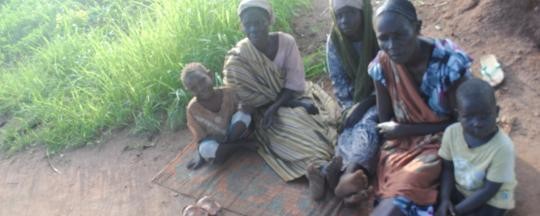South Sudan’s Red Crescent Society has distributed non-food items to the victims of heavy rains in Khor Hajir Boma of Raja County, Western Bahr al Ghazal.
Heavy rains caused the destruction of over 50 houses in Raja Town and more than 50 in Khor Hajir, also cutting roads connecting the county seat to its outlying areas.
Speaking to Radio Tamazuj last week, Juliate Zecharia, a mother of seven children, explained that she lost two houses earlier this month due to heavy rain.
“I lost my house at midnight due to heavy rain and my son survived when the house collapsed,” she said, adding that she simply moved her children under a tree.
“All what we had like grains is washed away and now we have no food and tent to cover ourselves with,” she said.
Juliate Zecharia added that her two children are sick and still without shelter. She complained that they have not received any help from the authorities or aid organizations yet as their conditions worsened.
Another victim, Misikin Suleiman, the father of six children, said that his house collapsed when they were sleeping and the children had to take cover under a tree. They were later admitted to Raja Hospital suffering from fever and cough.
Non-food items donated
South Sudan Red Crescent responded to the events by donating non-food items in Khor Hajir. According to Peter Nenebubu, who works as county SSRC director, said that the South Sudan Red Crescent have made the assessment of Khor Hajir and said that the victims were given non-food items.
Nenebubu confirmed the destruction of the houses of the citizens in Khor Hajir due to heavy and continuous rain but said that the situation does not amount to flood.
The officer noted that it will not be possible to take food there, saying that from Raja to Khor Hajir is 130 kilometres and the road is full of water.
It is also reported that Boro Medina area is cut off from the Raja county headquarters. Musa Adam, a local official there, said by phone that they have complained to the government for many years about the Boro-Raja road but nothing has been done.
“We have resorted to the old traditional way of life: we move using our feet in order to carry our sick people – many days footing, they die or live,” he said.




